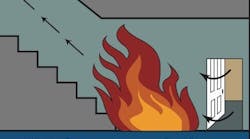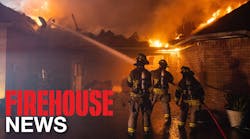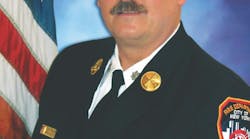No one likes to think about the prospect of a fellow firefighter dying in the line of duty, but it happens. The Public Safety Officers Benefits (PSOB) Act provides important benefits to survivors of firefighters killed in the line of duty and to firefighters who are permanently and totally disabled in the line of duty. Is your department prepared to assist a family in documenting and applying for the act’s benefits?
PSOB was enacted in 1976 to provide a one-time $50,000 payment to survivors of police officers and firefighters killed in the line of duty. Today, three criteria determine eligibility for benefits:
- A public safety officer dies, or is totally and permanently disabled
- In the line of duty
- Due to traumatic injury, heart attack or stroke
The U.S. Department of Justice’s Hope Janke, who oversees the PSOB program, said claims are always approved if they meet these criteria. However, beneath this simple test lie issues that have led to enhancements to the law. Under the original law, police officers and firefighters were the only public safety officers eligible for benefits. Subsequent legislation has added federal firefighters, members of rescue squads or ambulance crews, chaplains and Federal Emergency Management Agency (FEMA) employees (and their state counterparts) in certain circumstances.
Until 2003, a public safety officer who suffered a heart attack or stroke generally was not eligible for PSOB benefits, unless the survivors could demonstrate a direct relationship between the heart attack or stroke and actions performed in the line of duty. However, The Hometown Heroes Survivors Benefits Act of 2003 qualifies heart attacks and strokes as causes of line-of-duty deaths if a public safety officer dies as a “direct and proximate result” of a heart attack or stroke sustained in the line of duty and if the officer was involved in stressful or strenuous activity.
Public safety officers who are disabled in the line of duty were added in 1990. This provision is tightly drawn, so that only those permanently and totally disabled in the line of duty are eligible. The injury must prevent the officer from performing any substantial and gainful work, a requirement that is much more stringent than workers’ compensation eligibility. Medical retirement for a line-of-duty disability does not, by itself, create eligibility for PSOB disability benefits. It is not meant to be a substitute or complement for workers’ compensation benefits.
PSOB payments have increased dramatically since the act’s inception. The current payment is $275,658, more than five times the original benefit. Additionally, eligible spouses and children may receive up to $788 per month for educational expenses.
States provide additional benefits. The National Fallen Firefighters Foundation (NFFF) concludes that, “Some states offer a wide range of benefits while others provide very little support. …No two states offer the same benefits and criteria for eligibility.” State benefits available to survivors include lump-sum death payments, workers’ compensation, funeral benefits, scholarships, pensions and retirement programs.
Because the law has been amended several times, there are differing eligibility dates for different benefits. Generally, the benefits were effective as of their date of enactment. For example, the disability payment is available only to individuals whose injuries occurred on or after Nov. 29, 1990. However, the provision for chaplains to be included was made retroactive to Sept. 11, 2001.
Even though this is a relatively simple program, there are some complexities. The time of a firefighter’s line-of-duty death is not the time to be learning what needs to be done to properly document a benefits claim. The NFFF encourages all fire departments to have available a current list of federal, state and local benefits in the event of a fatality or disabling injury. Mary Ellis, the foundation’s managing director, says that departments should never presume that a death is not going to qualify for PSOB benefits. Survivors should always apply, she says, since they don’t always know all of the circumstances.
Both the NFFF and the Bureau of Justice Assistance, which administers PSOB, have made special efforts to reach out to families and departments in their time of need. The NFFF enables departments to pre-plan for a tragedy by providing two powerful resources on its website, www.firehero.org: a line-of-duty death checklist and a summary of steps for filing a PSOB claim.
It still is critical that each department designates an individual to be well versed on the application procedures for both state and federal benefits. Just as we pre-plan for emergency responses of various types, we should also pre-plan for the possibility of a tragedy within our department.
Steve Blackistone, a Firehouse® contributing editor, is an attorney and a member of the Bethesda-Chevy Chase Rescue Squad in Montgomery County, MD.




